Understanding Postpartum Depression
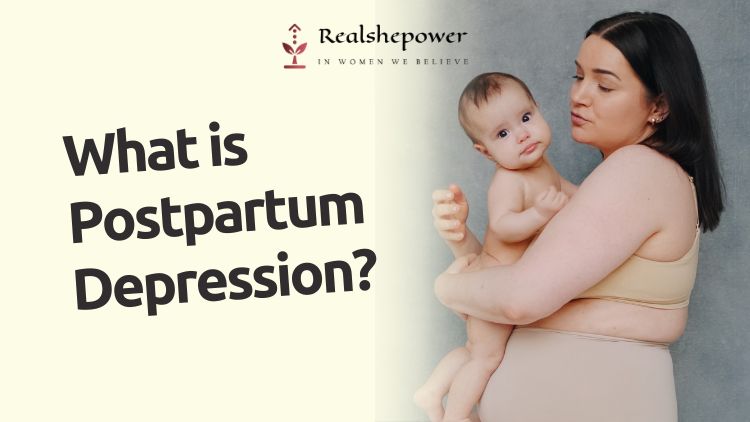

Childbirth is a monumental event in a person’s life, filled with joy, challenges, and emotions. However, some mothers face an overwhelming emotional challenge known as postpartum depression (PPD). Here’s an in-depth look into PPD, backed by scientific data.
Table of Contents
What is Postpartum Depression?
Simply put, postpartum depression is a kind of mood disorder that some mothers face after having a baby. This isn’t just “feeling blue”; it’s more profound, affecting day-to-day functioning.
According to the Centers for Disease Control and Prevention (CDC), about 1 in 8 women in the U.S. experience PPD.
What Causes Postpartum Depression?
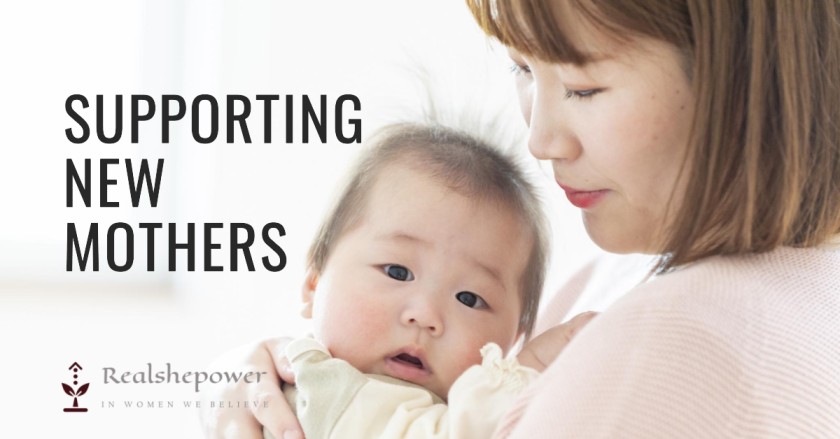
Postpartum Depression (PPD) is a complex condition influenced by a myriad of factors. To truly understand its roots, we need to delve into the biological, emotional, and environmental triggers that come into play following childbirth. By doing so, we can better empathize with and support affected mothers.
1. Hormonal Changes: Childbirth leads to a dramatic shift in hormones. Immediately after delivering, a woman experiences a rapid drop in hormones like estrogen and progesterone. This hormonal fluctuation can significantly affect mood.
Scientific Insight: Estrogen and progesterone, vital during pregnancy, see sharp declines post-delivery. Researchers believe that these hormonal drops can affect mood neurotransmitters, leading to PPD. A study from Harvard Review of Psychiatry reaffirms this, linking rapid hormonal shifts postpartum to depressive symptoms.
2. Physical Changes and Stress: The process of childbirth, whether natural or C-section, takes a toll on the body. The ensuing recovery, coupled with the demands of a newborn, often results in sleep deprivation, which can be a catalyst for mood disorders.
Scientific Insight: Sleep deprivation affects the brain’s prefrontal cortex, which manages emotional responses. This connection was highlighted in a research paper from Sleep Medicine Reviews, emphasizing how disrupted sleep postpartum can exacerbate emotional disturbances.
3. Emotional Factors and Lifestyle Changes: Transitioning to motherhood brings about significant emotional and lifestyle changes. The pressure to be a ‘perfect’ mother, anxiety about the baby’s well-being, or even grieving the loss of former independence can contribute to PPD.
Scientific Insight: A Journal of Affective Disorders study found that societal pressure and the internal desire to be an ‘ideal mother’ can increase PPD vulnerability.
4. Previous Mental Health Issues: Women who’ve previously faced depression or anxiety disorders are often at a higher risk of experiencing PPD.
Scientific Insight: A meta-analysis in JAMA Psychiatry indicated that women with a history of mood disorders have a 20-25% probability of experiencing postpartum mood disturbances, compared to the general 10-15% risk for the broader population.
5. Lack of Support: Inadequate support from partners, family, or friends can elevate the risk of PPD. Emotional and physical support post-childbirth is crucial.
Scientific Insight: According to the World Health Organization (WHO), social isolation and poor partner relationships can exacerbate PPD symptoms. Having an unsupportive environment intensifies feelings of isolation and overwhelm.
6. Personal History and Environmental Triggers: Factors like a traumatic childbirth, a baby with health problems, or other personal and familial stresses can act as triggers.
Scientific Insight: A study in the British Journal of Psychiatry highlighted how environmental stressors, including traumatic births or external familial stresses, can contribute to the onset of PPD.
7. Breastfeeding Challenges: Breastfeeding, while natural, doesn’t come easily to all. Pain, latch issues, or insufficient milk supply can add to postpartum stress.
Scientific Insight: A report from the International Journal of Environmental Research and Public Health drew a connection between breastfeeding difficulties and PPD, suggesting that mothers who face significant breastfeeding challenges may feel increased guilt or inadequacy.
In understanding the causes of PPD, we pave the way for better preventative strategies, more empathetic support, and effective treatments. By recognizing these factors, society can better assist mothers in navigating the challenging postpartum period.
Symptoms of Postpartum Depression: A Closer Look
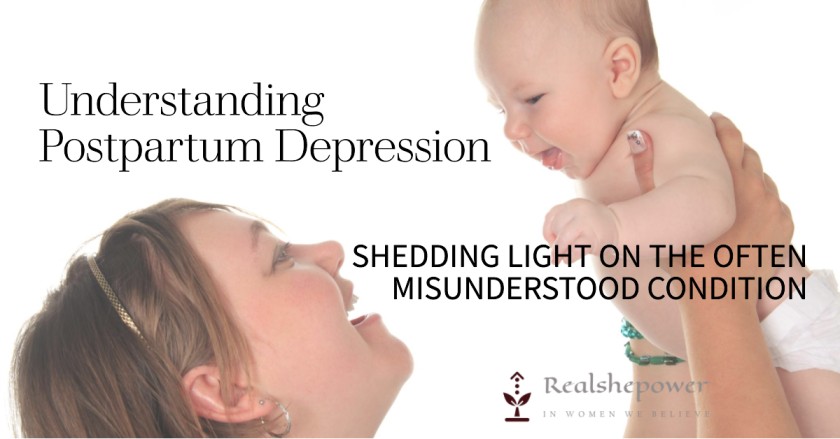
Postpartum depression (PPD) is more than just the standard “baby blues” that might occur right after childbirth. PPD can be profound and affect a mother’s ability to function daily. Understanding the symptoms can be the first step to seeking help and navigating the path to recovery.
1. Persistent Sadness: Unlike occasional moments of sadness or frustration that new mothers might feel, PPD involves a continuous, deep feeling of despair. This sadness might make tasks feel insurmountable and sap joy from moments that should be happy.
2. Extreme Fatigue: All new parents experience fatigue, but with PPD, the exhaustion goes beyond the norm. Even after a decent amount of sleep, a mother might feel drained, mentally, emotionally, and physically, to the point that even small tasks seem overwhelming.
3. Severe Mood Swings: The emotional rollercoaster can be erratic. Mothers may feel fine one moment and plunge into despair the next. This unpredictability can be alarming to both the person experiencing it and those around her.
4. Eating and Sleeping Disorders: This can manifest as insomnia or oversleeping and overeating or loss of appetite. These disrupted patterns can compound other symptoms, making them even more challenging to manage.
5. Social Withdrawal: Mothers with PPD often pull away from loved ones, avoiding social interactions and even daily tasks like grocery shopping or answering phone calls. This isolation can further exacerbate feelings of loneliness.
6. Difficulty Bonding with the Baby: While it’s common for new mothers to need time adjusting to their role, those with PPD might feel a persistent lack of connection to their baby. There might be feelings of resentment, indifference, or even fear.
7. Intense Irritability or Anger: Small annoyances can trigger exaggerated reactions. This heightened irritability can strain relationships with partners, other children, or family members.
8. Feelings of Worthlessness or Guilt: Thoughts like “I’m a bad mother” or “My child deserves better” can dominate. These feelings can be overwhelming, pushing mothers further into depression.
9. Diminished Ability to Think Clearly: Concentration suffers. A task as simple as making a shopping list or following a recipe can become daunting due to an inability to focus.
10. Severe Anxiety or Panic Attacks: Mothers might experience heart palpitations, a feeling of choking, or a trembling sensation. This intense anxiety can be paralyzing, making it difficult to perform even basic tasks.
11. Thoughts of Harming Oneself or the Baby: In extreme cases, PPD can lead to thoughts of self-harm or harming the baby. This is a severe symptom and requires immediate medical attention.
It’s crucial to note that experiencing one or more of these symptoms doesn’t necessarily mean a mother has PPD. However, if these feelings persist or intensify, they could be indicative of a deeper issue, and seeking professional help is essential. Recognizing the signs and understanding the depth of postpartum depression is the first step in providing support and care to those affected.
Data Point: A survey by the CDC found that the prevalence of these symptoms varied from 8% to 20% across different states in the U.S.
Baby Blues vs. PPD
| Baby Blues | Postpartum Depression (PPD) | |
|---|---|---|
| Duration | A few days to two weeks | Longer, often months or even more |
| Onset | Shortly after childbirth, often within 1-3 days | Can begin anytime within the first year after childbirth |
| Symptoms | Mood swings, anxiety, sadness, irritability, crying, decreased concentration | Persistent sadness, severe mood swings, difficulty bonding with baby, withdrawal from loved ones, loss of appetite or eating much more than usual, hopelessness, overwhelming fatigue, severe anxiety |
| Intensity | Mild to moderate mood swings | Intense feelings that interfere with daily activities |
| Treatment | Support, understanding, patience, and time | Potentially therapy, medication, and professional support |
Solutions and Coping Strategies for Postpartum Depression (PPD)
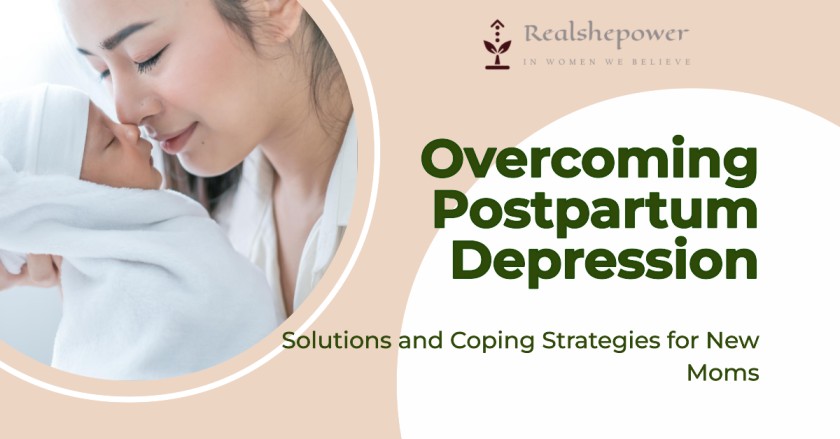
Navigating the stormy waters of postpartum depression can be daunting. The good news is that with the right tools and strategies, it’s possible to overcome these challenges. Let’s delve deeper into solutions and coping mechanisms:
- Seek Professional Help:
- The first step towards recovery is acknowledging the problem and seeking medical guidance. Regular check-ups with a healthcare provider or therapist can be immensely beneficial.
- Supporting Data: A report by the World Health Organization (WHO) highlighted that early detection of PPD symptoms leads to quicker and more effective treatment outcomes.
- Therapy Sessions:
- Cognitive Behavioral Therapy (CBT): This form of therapy helps in recognizing and altering negative thought patterns, promoting a positive outlook.
- Interpersonal Therapy (IPT): IPT focuses on improving interpersonal relationships and communication, addressing issues like role transitions and unresolved grief.
- Supporting Data: A systematic review in the British Journal of Psychiatry found that women with PPD showed significant improvement with regular CBT and IPT sessions.
- Medication:
- Some mothers find relief through antidepressants or other medications. It’s vital to have a detailed conversation with your healthcare provider about possible side effects, especially if breastfeeding.
- Supporting Data: A study published in the Journal of Clinical Psychiatry indicated that selective serotonin reuptake inhibitors (SSRIs) can be effective in treating PPD, especially when combined with therapy.
- Self-Care Rituals:
- Rest: While adjusting to a newborn’s schedule can be tricky, try to nap when the baby naps.
- Balanced Diet: A nutritious diet can positively influence mood and energy levels.
- Physical Activity: Simple exercises, even a brief walk, can release endorphins, which are natural mood lifters.
- Personal Time: Dedicate some time for hobbies, reading, or any activity you love.
- Supporting Data: According to the National Institute of Mental Health (NIMH), self-care significantly boosts mental well-being and aids in managing symptoms of depression.
- Support Groups and Communities:
- Engaging with others who are experiencing or have experienced PPD can be therapeutic. It’s comforting to know you’re not alone, and sharing experiences can offer fresh perspectives and coping techniques.
- Supporting Data: Research from the Journal of Advanced Nursing showed that mothers who attended PPD support groups experienced a significant reduction in depression symptoms.
- Educate Yourself:
- Understanding the intricacies of PPD can make the condition less intimidating. There are several books, articles, and online resources dedicated to PPD.
- Lean on Loved Ones:
- Sharing your feelings with a trusted friend or family member can be therapeutic. They can also help in practical ways, like babysitting or helping with household chores.
- Supporting Data: A study in the Journal of Psychosomatic Obstetrics & Gynecology highlighted the positive impact of social support in reducing PPD symptoms.
- Set Realistic Expectations:
- Understand that it’s okay not to be the “perfect” mother portrayed in movies or on social media. Every mother’s journey is unique, and it’s okay to ask for help.
- Avoid Alcohol and Drugs:
- While they might seem like temporary escapes, they can exacerbate depressive symptoms and interfere with antidepressants.
- Supporting Data: The National Institute on Alcohol Abuse and Alcoholism (NIAAA) warns that alcohol can intensify the feelings of sadness or fatigue common in PPD.
- Stay Connected:
- Isolation can worsen depressive symptoms. Even if it’s a short phone call, regular interaction with loved ones or friends can make a huge difference.
Remember, with the right tools and support system, overcoming PPD is within reach. It’s essential to prioritize your well-being, and there’s no shame in seeking help or leaning on others during this challenging time.
Relevant FAQs about Postpartum Depression
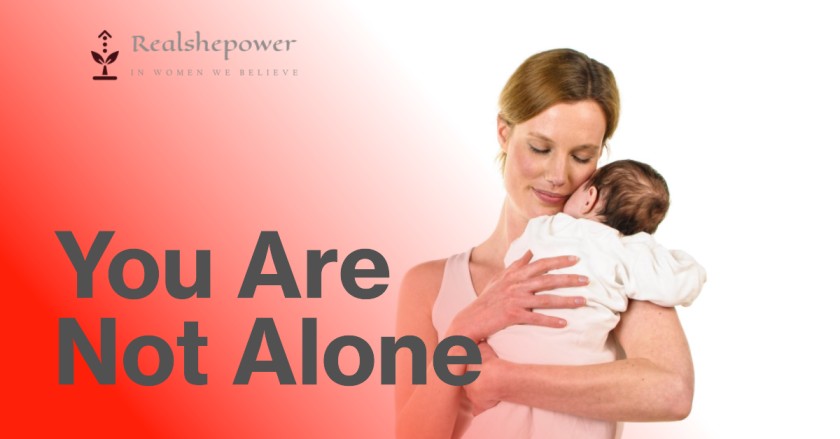
Q: How long does postpartum depression usually last?
A: It varies for everyone. Some women might feel better after a few months, while others can experience symptoms for a year or longer. With proper treatment, most people do see improvement.
Q: Can postpartum depression occur after a miscarriage?
A: Yes. Women can experience symptoms of PPD after a miscarriage due to the sudden shift in hormones coupled with the emotional trauma of losing a baby.
Q: Does breastfeeding influence postpartum depression?
A: The relationship between breastfeeding and PPD is complex. Some studies suggest that breastfeeding can reduce the risk of PPD due to the release of oxytocin, while others indicate that difficulties with breastfeeding can contribute to depressive symptoms.
Q: Can PPD recur with subsequent pregnancies?
A: Yes. Women who have had PPD in the past are at a higher risk of experiencing it again with future pregnancies.
Q: Are there natural remedies for PPD?
A: While certain lifestyle changes, like regular exercise, a balanced diet, and adequate sleep can help alleviate some symptoms, it’s crucial to consult with a healthcare provider before trying any treatment or remedy.
A Note to Our Readers
Postpartum depression is not a sign of weakness or a lack of love for your child. It’s a real, measurable, and treatable medical condition that many mothers face. It’s essential to recognize the signs, seek help when needed, and offer support to loved ones who might be going through it. Remember, with the right treatment and support, postpartum depression is temporary and treatable. You are not alone, and there’s a community of caregivers, professionals, and fellow parents ready to support and guide you through this journey. Always prioritize your mental well-being, and never hesitate to seek help.
Postpartum depression is a challenge, but with awareness, understanding, and support, it’s surmountable. Always reach out for help if you believe you or someone you know might be experiencing PPD. It’s essential to prioritize mental health, especially during such a transformative phase of life.
The Secret Struggles of Motherhood: 5 Challenges That No One Warns You About
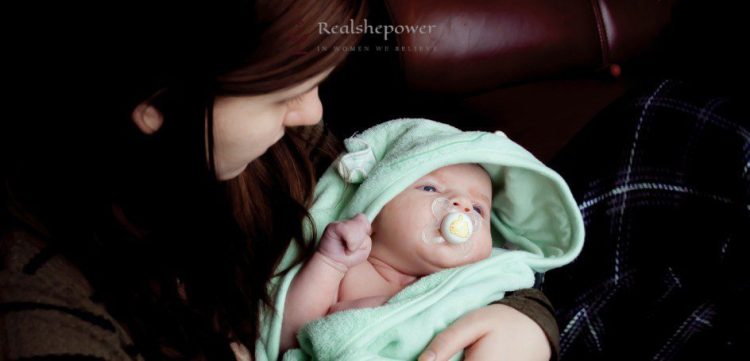
You can now write for RealShePower and be a part of the community. Share your stories and opinions with us here.

I do not even know how I ended up here, but I thought this post was great. I do not know who you are but certainly you’re going to a famous blogger if you are not already 😉 Cheers!